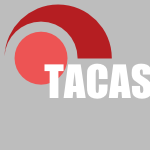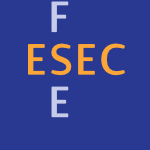43 papers:
 ICALP-v2-2015-Klein0 #game studies #how #infinity #lookahead #question
ICALP-v2-2015-Klein0 #game studies #how #infinity #lookahead #question- How Much Lookahead is Needed to Win Infinite Games? (FK, MZ), pp. 452–463.
 KDD-2015-WuYC #predict #realtime
KDD-2015-WuYC #predict #realtime- Predicting Winning Price in Real Time Bidding with Censored Data (WCHW, MYY, MSC), pp. 1305–1314.
 LICS-2015-CanavoiGLP #fixpoint #logic
LICS-2015-CanavoiGLP #fixpoint #logic- Defining Winning Strategies in Fixed-Point Logic (FC, EG, SL, WP), pp. 366–377.
 CSEET-2014-FranklBK14a #collaboration #education #re-engineering #social
CSEET-2014-FranklBK14a #collaboration #education #re-engineering #social- Win-for-all in software engineering education: Balancing social dilemmas to foster collaboration (GF, SB, BK), pp. 163–167.
 SIGIR-2014-LuoZY #game studies #probability
SIGIR-2014-LuoZY #game studies #probability- Win-win search: dual-agent stochastic game in session search (JL, SZ, HY), pp. 587–596.
 DUXU-NTE-2013-PriorSEBM #challenge
DUXU-NTE-2013-PriorSEBM #challenge- HALO the Winning Entry to the DARPA UAVForge Challenge 2012 (SDP, STS, MAE, MB, WM), pp. 179–188.
 RE-2013-Beatty #requirements
RE-2013-Beatty #requirements- Winning the hidden battle: Requirements tool selection and adoption (JB), pp. 364–365.
 TLCA-2013-Blot #game studies
TLCA-2013-Blot #game studies- Realizability for Peano Arithmetic with Winning Conditions in HON Games (VB), pp. 77–92.
 ICSE-2012-Kukreja #collaboration #elicitation #framework #named #network #requirements #social
ICSE-2012-Kukreja #collaboration #elicitation #framework #named #network #requirements #social- Winbook: A social networking based framework for collaborative requirements elicitation and WinWin negotiations (NK), pp. 1610–1612.
 CSL-2012-GradelL #game studies
CSL-2012-GradelL #game studies- Banach-Mazur Games with Simple Winning Strategies (EG, SL), pp. 305–319.
 LICS-2012-ChatterjeeD #game studies #how #probability
LICS-2012-ChatterjeeD #game studies #how #probability- Partial-Observation Stochastic Games: How to Win When Belief Fails (KC, LD), pp. 175–184.
 LICS-2012-ClairambaultGW #concurrent #game studies
LICS-2012-ClairambaultGW #concurrent #game studies- The Winning Ways of Concurrent Games (PC, JG, GW), pp. 235–244.
 SAS-2011-NoriR #machine learning #program analysis
SAS-2011-NoriR #machine learning #program analysis- Program Analysis and Machine Learning: A Win-Win Deal (AVN, SKR), pp. 2–3.
 CIAA-2009-Zimmermann #game studies
CIAA-2009-Zimmermann #game studies- Time-Optimal Winning Strategies for Poset Games (MZ0), pp. 217–226.
 LICS-2009-HansenKM #concurrent #game studies #reachability
LICS-2009-HansenKM #concurrent #game studies #reachability- Winning Concurrent Reachability Games Requires Doubly-Exponential Patience (KAH, MK, PBM), pp. 332–341.
 CSEET-2008-Honig #education #exclamation #generative #process #quality #re-engineering
CSEET-2008-Honig #education #exclamation #generative #process #quality #re-engineering- Teaching Successful “Real-World” Software Engineering to the “Net” Generation: Process and Quality Win! (WLH), pp. 25–32.
 LICS-2008-CarayolHMOS #automaton #game studies #higher-order
LICS-2008-CarayolHMOS #automaton #game studies #higher-order- Winning Regions of Higher-Order Pushdown Games (AC, MH, AM, CHLO, OS), pp. 193–204.
 CSL-2007-Kopczynski
CSL-2007-Kopczynski- ω-Regular Half-Positional Winning Conditions (EK), pp. 41–53.
 ASE-2006-Thrun #challenge
ASE-2006-Thrun #challenge- Winning the DARPA Grand Challenge: A Robot Race through the Mojave Desert (ST), p. 11.
 DAC-2006-SingerMBHK #question #what
DAC-2006-SingerMBHK #question #what- The IC nanometer race — what will it take to win? (GS, PM, DB, FCH, HKK), pp. 77–78.
 CSEET-2006-GrunbacherSBIKP #approach #education #re-engineering #student
CSEET-2006-GrunbacherSBIKP #approach #education #re-engineering #student- Making Every Student a Winner: The WinWin Approach in Software Engineering Education (PG, NS, ROB, HPI, HK, DP), pp. 201–208.
 TACAS-2006-ChatterjeeH #game studies
TACAS-2006-ChatterjeeH #game studies- Finitary Winning in ω-Regular Games (KC, TAH), pp. 257–271.
 FSE-2006-DamasLL #state machine #synthesis
FSE-2006-DamasLL #state machine #synthesis- Scenarios, goals, and state machines: a win-win partnership for model synthesis (CD, BL, AvL), pp. 197–207.
 LICS-2006-BrazdilBFK #game studies #probability
LICS-2006-BrazdilBFK #game studies #probability- Stochastic Games with Branching-Time Winning Objectives (TB, VB, VF, AK), pp. 349–358.
 ICALP-2004-Serre #complexity #game studies
ICALP-2004-Serre #complexity #game studies- Games with Winning Conditions of High Borel Complexity (OS), pp. 1150–1162.
 SIGMOD-2003-ZuzartePMCLW #using
SIGMOD-2003-ZuzartePMCLW #using- WinMagic : Subquery Elimination Using Window Aggregation (CZ, HP, WM, QC, LL, KW), pp. 652–656.
 CSL-2003-Walukiewicz #synthesis #tutorial
CSL-2003-Walukiewicz #synthesis #tutorial- Winning Strategies and Synthesis of Controllers (Tutorial) (IW), p. 574.
 SEKE-2002-RuheEP #requirements
SEKE-2002-RuheEP #requirements- Quantitative WinWin: a new method for decision support in requirements negotiation (GR, AE, DP), pp. 159–166.
 CSL-2002-CachatDT #automaton #game studies
CSL-2002-CachatDT #automaton #game studies- Solving Pushdown Games with a Σ₃ Winning Condition (TC, JD, WT), pp. 322–336.
 ASE-2001-FahmyHC #algebra #architecture
ASE-2001-FahmyHC #algebra #architecture- Wins and Losses of Algebraic Transformations of Software Architectures (HF, RCH, JRC), pp. 51–62.
 SVIS-2001-BaskenN #algorithm #geometry #interactive #named #visualisation
SVIS-2001-BaskenN #algorithm #geometry #interactive #named #visualisation- GeoWin — A Generic Tool for Interactive Visualization of Geometric Algorithms (MB, SN), pp. 88–100.
 ESEC-FSE-2001-GrunbacherB #named #requirements
ESEC-FSE-2001-GrunbacherB #named #requirements- EasyWinWin: a groupware-supported methodology for requirements negotiation (PG, BWB), pp. 320–321.
 ICSE-2001-BoehmGB #named #requirements
ICSE-2001-BoehmGB #named #requirements- EasyWinWin: A Groupware-Supported Nethodology for Requirements Negotiation (BWB, PG, ROB), pp. 720–721.
 ICSE-2001-InBRD #case study #quality #requirements
ICSE-2001-InBRD #case study #quality #requirements- Applying WinWin to Quality Requirements: A Case Study (HI, BWB, TLR, MD), pp. 555–564.
 FASE-2000-LuthW #development #tool support
FASE-2000-LuthW #development #tool support- More About TAS and IsaWin — Tools for Formal Program Development (CL, BW), pp. 367–370.
 FASE-1999-LuthTKK #development #proving #theorem proving #tool support
FASE-1999-LuthTKK #development #proving #theorem proving #tool support- TAS and IsaWin: Tools for Transformational Program Development and Theorem Proving (CL, HT, K, BKB), pp. 239–243.
 ICSE-1999-HorowitzLL #named #requirements
ICSE-1999-HorowitzLL #named #requirements- WinWin: A System for Negotiating Requirements (EH, JHL, JSL), pp. 646–649.
 ESEC-FSE-1997-BoehmEKM #multi
ESEC-FSE-1997-BoehmEKM #multi- Developing Multimedia Applications with the WinWin Spiral Model (BWB, AE, JK, RJM), pp. 20–39.
 LICS-1997-DziembowskiJW #game studies #how #infinity #memory management #question
LICS-1997-DziembowskiJW #game studies #how #infinity #memory management #question- How Much Memory is Needed to Win Infinite Games? (SD, MJ, IW), pp. 99–110.
 TACAS-1996-BuhrkeLV #infinity
TACAS-1996-BuhrkeLV #infinity- Strategy Construction in Infinite Ganes with Streett and Rabin Chain Winning Conditions (NB, HL, JV), pp. 207–224.
 KBSE-1995-Bose #collaboration #framework #maintenance
KBSE-1995-Bose #collaboration #framework #maintenance- A Model for Decision Maintenance in the WinWin Collaboration Framework (PKB), pp. 105–113.
 CAV-1995-Lescow #finite #game studies #on the #source code
CAV-1995-Lescow #finite #game studies #on the #source code- On Polynomial-Size Programs Winning Finite-State Games (HL), pp. 239–252.
 ICRE-1994-BoehmBHL #requirements
ICRE-1994-BoehmBHL #requirements- Software requirements as negotiated win conditions (BWB, PKB, EH, MJL), pp. 74–83.
 ICALP-v2-2015-Klein0 #game studies #how #infinity #lookahead #question
ICALP-v2-2015-Klein0 #game studies #how #infinity #lookahead #question KDD-2015-WuYC #predict #realtime
KDD-2015-WuYC #predict #realtime LICS-2015-CanavoiGLP #fixpoint #logic
LICS-2015-CanavoiGLP #fixpoint #logic CSEET-2014-FranklBK14a #collaboration #education #re-engineering #social
CSEET-2014-FranklBK14a #collaboration #education #re-engineering #social SIGIR-2014-LuoZY #game studies #probability
SIGIR-2014-LuoZY #game studies #probability DUXU-NTE-2013-PriorSEBM #challenge
DUXU-NTE-2013-PriorSEBM #challenge RE-2013-Beatty #requirements
RE-2013-Beatty #requirements TLCA-2013-Blot #game studies
TLCA-2013-Blot #game studies ICSE-2012-Kukreja #collaboration #elicitation #framework #named #network #requirements #social
ICSE-2012-Kukreja #collaboration #elicitation #framework #named #network #requirements #social CSL-2012-GradelL #game studies
CSL-2012-GradelL #game studies LICS-2012-ChatterjeeD #game studies #how #probability
LICS-2012-ChatterjeeD #game studies #how #probability LICS-2012-ClairambaultGW #concurrent #game studies
LICS-2012-ClairambaultGW #concurrent #game studies SAS-2011-NoriR #machine learning #program analysis
SAS-2011-NoriR #machine learning #program analysis CIAA-2009-Zimmermann #game studies
CIAA-2009-Zimmermann #game studies LICS-2009-HansenKM #concurrent #game studies #reachability
LICS-2009-HansenKM #concurrent #game studies #reachability CSEET-2008-Honig #education #exclamation #generative #process #quality #re-engineering
CSEET-2008-Honig #education #exclamation #generative #process #quality #re-engineering LICS-2008-CarayolHMOS #automaton #game studies #higher-order
LICS-2008-CarayolHMOS #automaton #game studies #higher-order CSL-2007-Kopczynski
CSL-2007-Kopczynski ASE-2006-Thrun #challenge
ASE-2006-Thrun #challenge DAC-2006-SingerMBHK #question #what
DAC-2006-SingerMBHK #question #what CSEET-2006-GrunbacherSBIKP #approach #education #re-engineering #student
CSEET-2006-GrunbacherSBIKP #approach #education #re-engineering #student TACAS-2006-ChatterjeeH #game studies
TACAS-2006-ChatterjeeH #game studies FSE-2006-DamasLL #state machine #synthesis
FSE-2006-DamasLL #state machine #synthesis LICS-2006-BrazdilBFK #game studies #probability
LICS-2006-BrazdilBFK #game studies #probability ICALP-2004-Serre #complexity #game studies
ICALP-2004-Serre #complexity #game studies SIGMOD-2003-ZuzartePMCLW #using
SIGMOD-2003-ZuzartePMCLW #using CSL-2003-Walukiewicz #synthesis #tutorial
CSL-2003-Walukiewicz #synthesis #tutorial SEKE-2002-RuheEP #requirements
SEKE-2002-RuheEP #requirements CSL-2002-CachatDT #automaton #game studies
CSL-2002-CachatDT #automaton #game studies ASE-2001-FahmyHC #algebra #architecture
ASE-2001-FahmyHC #algebra #architecture SVIS-2001-BaskenN #algorithm #geometry #interactive #named #visualisation
SVIS-2001-BaskenN #algorithm #geometry #interactive #named #visualisation ESEC-FSE-2001-GrunbacherB #named #requirements
ESEC-FSE-2001-GrunbacherB #named #requirements ICSE-2001-BoehmGB #named #requirements
ICSE-2001-BoehmGB #named #requirements ICSE-2001-InBRD #case study #quality #requirements
ICSE-2001-InBRD #case study #quality #requirements FASE-2000-LuthW #development #tool support
FASE-2000-LuthW #development #tool support FASE-1999-LuthTKK #development #proving #theorem proving #tool support
FASE-1999-LuthTKK #development #proving #theorem proving #tool support ICSE-1999-HorowitzLL #named #requirements
ICSE-1999-HorowitzLL #named #requirements ESEC-FSE-1997-BoehmEKM #multi
ESEC-FSE-1997-BoehmEKM #multi LICS-1997-DziembowskiJW #game studies #how #infinity #memory management #question
LICS-1997-DziembowskiJW #game studies #how #infinity #memory management #question TACAS-1996-BuhrkeLV #infinity
TACAS-1996-BuhrkeLV #infinity KBSE-1995-Bose #collaboration #framework #maintenance
KBSE-1995-Bose #collaboration #framework #maintenance CAV-1995-Lescow #finite #game studies #on the #source code
CAV-1995-Lescow #finite #game studies #on the #source code ICRE-1994-BoehmBHL #requirements
ICRE-1994-BoehmBHL #requirements









